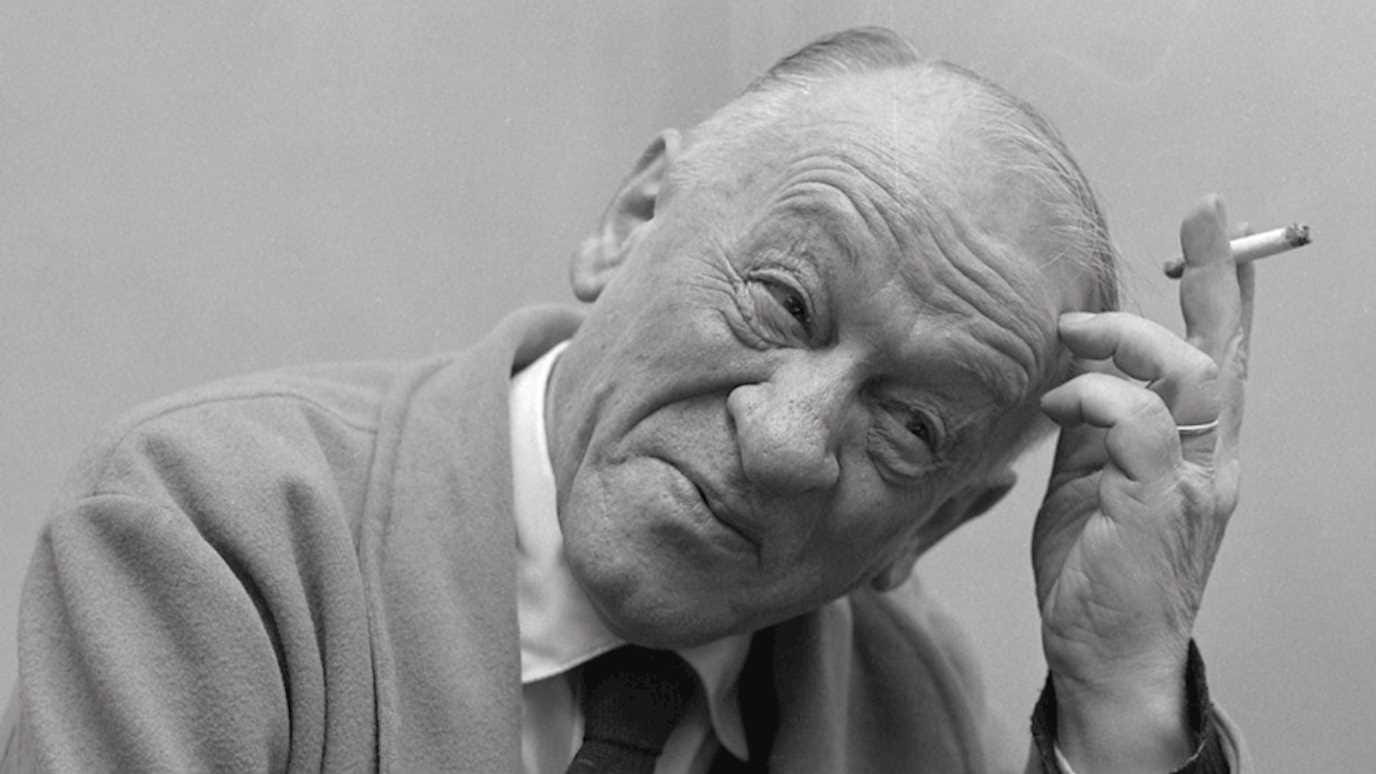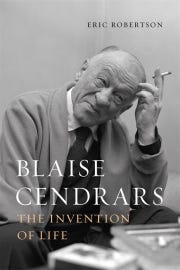Blaise Cendrars: The Invention of Life by Eric Robertson (Reaktion Books, 2022)
There are thousands of writers who I adore, but only a few that influenced my work, and among the very few is Blaise Cendrars. Specifically, his poetry reads to me like newspaper headlines filtered through a humorous sensibility, but he also appreciates language and how it is used. Cendrars is also a writer with an image, like Henry Miller, Hemingway, and even Charles Bukowski, and such an image is something sellable to the reading public. This one-armed tobacco-stained fingered author is the classic figure of what we think of a writer who lived his life in adventurous times. And Cendrars did live a magnificent (although exaggerated) life. But for this reader, his image is the least important compared to his prose writing style and poetic discrimination.
Eric Robertson’s book-length study Blaise Cendrars: The Invention of Life is partly a biography but mainly a study of his writings. Robertson is from Academica, but he writes like a well-formed fan of an author’s work, and therefore he shares that love for Cendrars and the world he conveys in his memoirs, poetry, screenwriting, and fiction. It was a very hard book for me to put down, and it reminded me of the importance of writers like Cendrars, who has a heroic stance in life; although not a perfect human being, he had qualities that one can admire from a distance.
Cendrars lost his arm in World War I, shot up by a machine gun fire, where only the skin was holding his arm in place. He had to learn to use his left hand for writing and everything else. He was an artist who suffered from depression but kept on with his work as much as possible. Although he was surrounded by the DADA movement, like Marcel Duchamp, he didn’t join the others, primarily due to his strong individualism.
What I find interesting about his writing is that the cinema influenced him. He had an early appreciation of cinema language and used it in his poetry, which modernized his work a great deal. The big difference between him and other ‘modern’ poets is that he embraced another medium (movies) and used it in his work.
Cendrars traveled the world, but like the contemporary saying of the 1950s, “It’s (Frank) Sinatra world - we just live in it,” can say the same for Blaise. Whether on the North Pole or South America, it is filtered through Cendrars and therefore becomes an invention by the author. If you love the writing and the characteristics of the inventor, then you will love the writer. This is how I feel about Yukio Mishima, Robert Benchley, Osamu Dazai, and of course, Blaise Cendrars.




